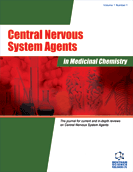
Full text loading...

In stroke, reperfusion of blood to the cerebral ischemic area following sustained ischemia further exacerbates tissue damage, identified as cerebral ischemia and reperfusion (I/R) insult. Ischemic post-conditioning (IPoC) appears to offer benefits against I/R injury. The cascade of androgen receptors (ARs) has a vital role in cerebral stroke; however, its neurodefensive function in IPoC is unclear. This investigation aimed to explore the involvement of ARs in IPoC in cerebral I/R insult in rats.
Global cerebral ischemia/reperfusion (GCI/R) insult in experimental animals was provoked by 10 minutes of obstruction of the bilateral carotid arteries after reperfusion for 24 hours. IPoC was carried out by providing a triad of I/R insults with a gap of 10 minutes of GCI after 24 hours of reperfusion. Lateral push, inclined beam, rota rod, hanging wire, and Morris-water maze experimentations were conducted on animals to determine motor control and cognitive functions (learning and memory). Cerebral oxidative damage markers (raised lipid peroxidation and reduced glutathione levels), acetylcholinesterase (AChE) activity, inflammatory indicators (interleukin-6, interleukin-10, tumor necrosis factor-α, and myeloperoxidase), infarction, and histopathological alterations were also assessed.
Animals with I/R exhibited reduced motor function and memory along with raised cerebral oxidative damage, AChE activity, inflammation, infarction, and histopathological alterations. IPoC after ischemic events recuperated the damaging outcomes of I/R insult. 60 minutes before cerebral ischemia, pretreatment with testosterone mimicked the neurodefensive outcomes of IPoC. However, neuroprotective outcomes developed by IPoC were diminished by flutamide (ARs antagonist) pretreatment.
IPoC may offer neuroprotective outcomes in I/R insult by modulation of AR-mediated pathway.

Article metrics loading...

Full text loading...
References


Data & Media loading...